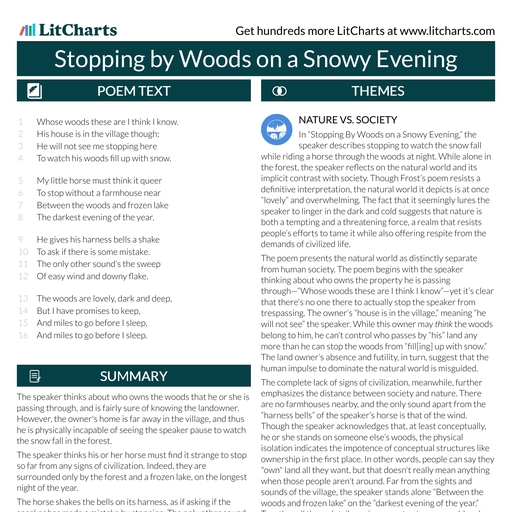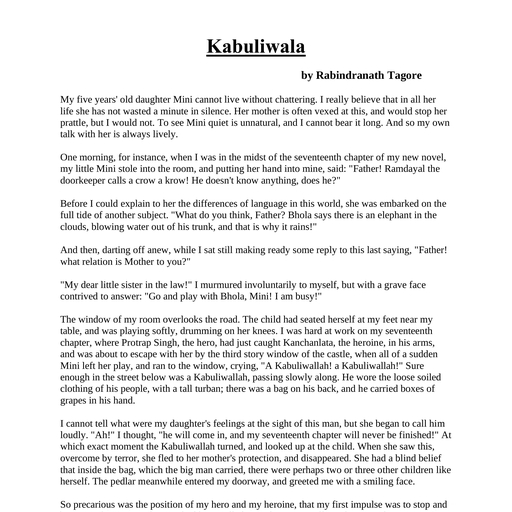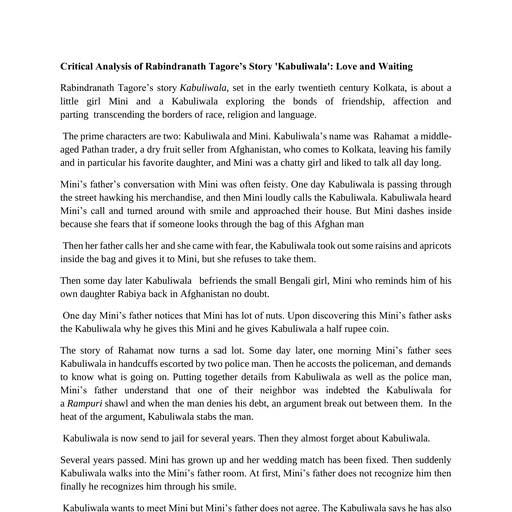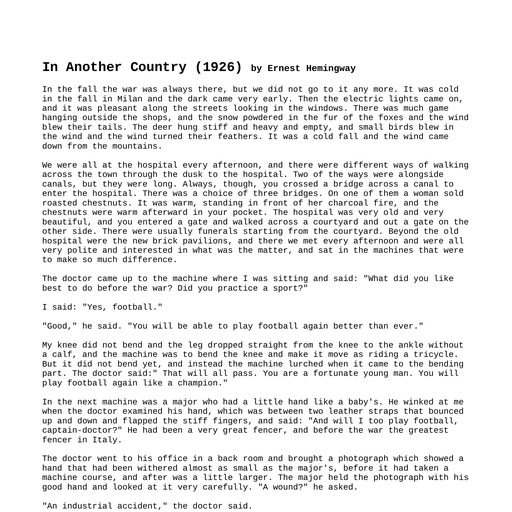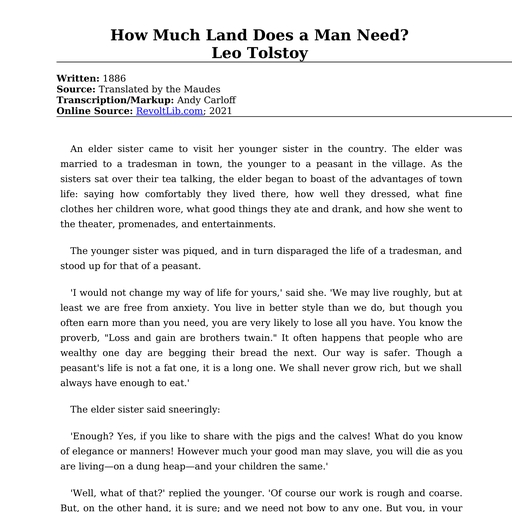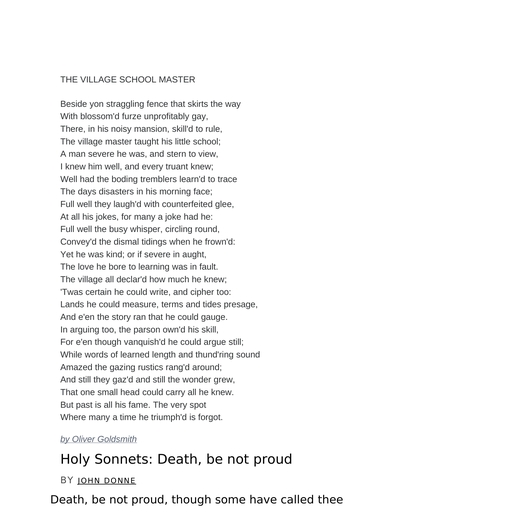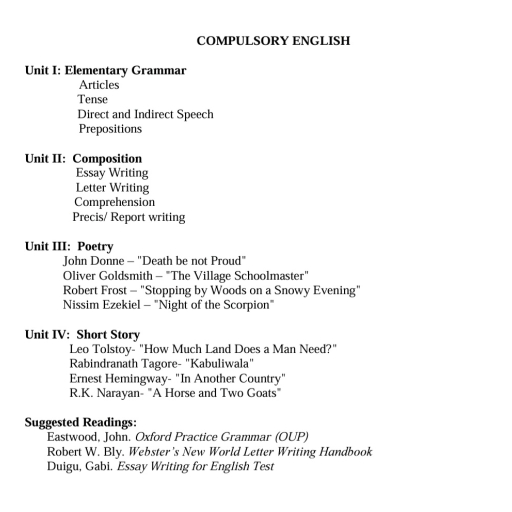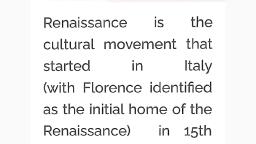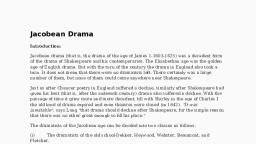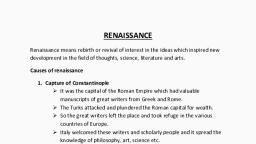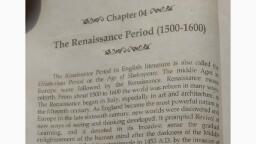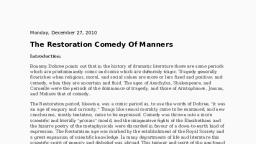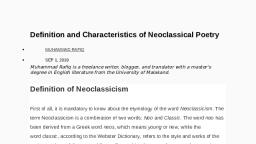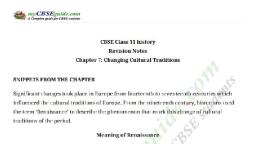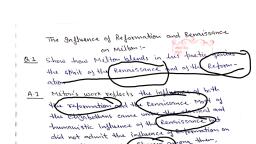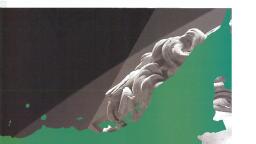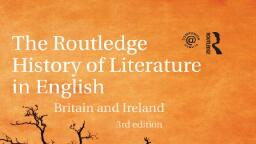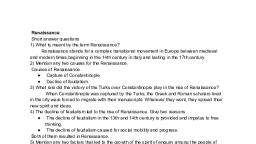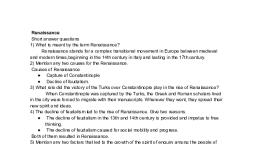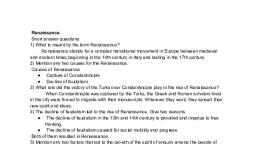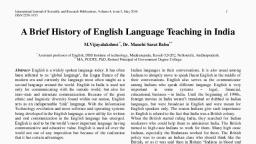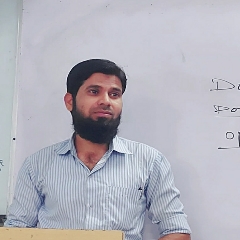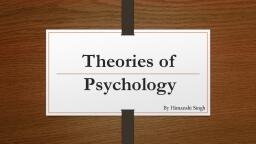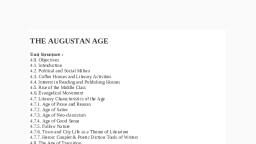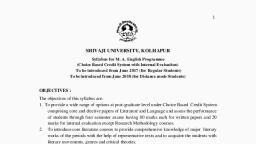Page 1 :
( B.A. (Hons.) Programme, English II Year ), , PAPER Ill : English Literature - 1, , Renaissance Humanism, Study Material : 1, , , , , , , , # UN;, , ELSEONTS, , SCHOOL OF OPEN LEARNING, , (Campus of Open Learning), University of Delhi, , , , , Department of English, Compiled by : P.-C. Khanna
Page 2 :
Graduate Course, , Paper-Ill, English Literature—1, , Renaissance Humanism, , Contents, , 1. Introduction - P.C. Khanna, - TheBeginningsofHumanism — - Emile Legouis : A History of English Literature, , - Renaissance Humanism - Microsoft Encarta Encyclopedia, , - Humanism and Reformation - Hardin Carig : The Literature of the English Renaissance, , Introduced by:, P.C. Khanna, , , , SCHOOL OF OPEN LEARNING, UNIVERSITY OF DELHI, ‘$, Cavalry Lane, Delhi-110007
Page 3 :
Academic Session 2013-14 (800 copies), , , , , , , , © School of Open Learning, , , , , , Published by ‘ Executive Director, School of Open Learning, 5 Cavalry Lane, Delhi-110 007, Printed at : A-One Offset Printers, 5/34, Kirti Nagar Indl. Area, New Delhi-110015
Page 4 :
INTRODUCTION, , In order to understand Renaissance (Re : again, naissance : birth) Humanism it is essential to, _ analyse the umbilical relationship between Humanism and Renaissance. "Renaissance is the period in, Europe between the 14th and 17th Centuries, when the art, literature, and ideas of ancient Greece were, discovered again and widely studied causing a rebirth of activity in all these things.’ (Longman Dictionary, of Contemporary English) "Humanism is a philosophy that believes in mankind's ability to achieve, happiness and fulfillment without the need for religion’ (Collins cobuild, English language Dictionary), What we are to study here is how the rebirth of knowledge of ancient Greece was responsible for, restructuring the society in such a way that man and not religion became its nucleus, , This shift in emphasis from religion to man (which later became a philosophy and virtually the, father of all critical theories) was first witnessed in The Renaissance, in Europe and given the name, Renaissance Humanism. The medieval people were interested in the other world, in the life beyond, grave. The Renaissance was interested in this world. It was a gradual $hift from a God-controlled, (church controlled) society to a man-oriented (thought controlled) socicty. The term Renaissance is, associated with many controversies and has occasioned much debate. Like other general terms it embraces, many exceptions and apparent controdictions. The notion of rebirth in also challenged for culture is, not a discontinuous process. In general the Renaissance thought prevailed in Europe between 1450 and, 1650. The most pervasive characteristic of this thought was Humanism. Before we study Renaissance, Humanism, let us know something more about the Renaissance Culture, , The Renaissance Culture originated in Italy and moved to France and Spain before making its, impact felt in England. The Outline of Literature (Edited by John Drinkwater, Newnes : London,, P 188-189) writes ; Renaissance means rebirth. The epoch of European history that is known as the, Renaissance was the period of the revival of learning with the consequent impetus to literature and, art, that occurred in the fifteenth and sixteenth centuries. For six hundred years after the death of, St. Augustine, Europe was enveloped in a mist of intellectual darkness, the ancient Classic learning, being preserved in only a few monasteries. The dawn came slowly, with the magnificent conception, of the wonders of life to be found in Dante, with the joy of living so evident in Chaucer. With the, Renaissance, the sun burst forth in fresh glory and revealed itself in the development of ideas and in, new-found beauty of expression. The causes of the awakening can be only summarised here. The capture, of Constantinople by the Turks in 1453 was followed by the exodus of Greek scholars to Italy, carrying, with them the knowledge of Greek literature that the west of Europe had almost entirely lost. A century, earlier the Italians had learned from the Moors to make paper, and, most important of all, the first, printing press was set up at Mainz in Germany, ten years before the fall of Constantinople. In 1495, Columbus discovered America, and men began to have an entirely new idea of the world. Social, political,, and religious ideas were revolutionised, and the spirit of inquiry and intellectual activity heralded the, Reformation. There is no more happy coincidence in the history of the world than that the new learning, and the printing press, the new way of propagating learning, came to Europe almost at the same moment, , Because of its nearness to Greece and because of its inheritance of the Roman tradition, the, Renaissance began in Italy, and it was there that "man began to turn from the medieval preoccupation, with death, to raise his eyes from long dwelling on the grave, and to rejoice in the dear life of earth, and the glory of this beautiful world." To quote Symonds, "Florence borrowed her light from Athens,, as the moon shines with rays reflected from the sun." The Italian scholars turned their attention to, rescuing the classical manuscripts from a mouldering death. Translations were made from the ancient, authors of Greece and Rome, whose work had been buried in the monasteries.
Page 5 :
4, , Renaissance (1500-1660, in England). The rebirth of art and literature from the rediscovery of, ancient Greece and Rome, and a turning against medieval mortification and contempt for this world, to see humanity as the full measure to which knowledge, achievement, beauty, and enjoyment might, expand. It began in Italy with Dante (1265-132 1), who forged a new national language and consciousness,, with Virgil at his side in his new Christian epic The divine Comedy (1300-1320), soon Petrarch, (1304-1374) termed the Middle Ages "dark" and called for an awakening into the radiance of the Greek, and Roman past., , The Renaissance, though glimmering in Chaucer's day, reached England over a century later with, the arrival of Erasmus, the Dutch "Prince of Humanists," on his first visit in 1499, and with the scholars, whom young Henry VIII began to attract to his court in 1509. The discovery of America and further, voyages of discovery and commerce, Copernicus's new astronomy (1542), Caxton's new printing press, at Westminster (1476), the Protestant Reformation, which turned from ecclesiastical authority toward, individual consciousness, all stimulated an optimistic excitement as to what humans could achieve, an, optimism which flowered in the Elizabethans., , The English Renaissance really ended with Elizabeth in 1603. Skepticism entered with the dour, Scot James I, and exuberance faded before the rising Puritans, who closed the theaters in 1642., Nevertheless, Francis Bacon's Advancement of Learning (1605) and Novum Organum (1620), his "new, instrument" of empirical science, continued the Renaissance quest toward expanding horizons. In France,, Descarter's immensely influential Discours (1637), rendered into Latin in 1644, carried the Renaissance, to its ego-centric extremity : cogito ergo sum, "I think; therefore, I am." Even the repressive, COMMONWEALTH, which killed a king to set up a government of legislators (1649), was a late, Renaissance expression. Hence historians close the English Renaissance at 1660, the RESTORATION,, when the cheerful Charles II changed the Puritan dirge, and Milton's Paradise Lost (1667), the last, great Renaissance accomplishment, revived the epic past in new Christian magnitude., , Humanism : A literary and Philosophical view emphasizing humankind as the center of its concerns, Humanism originated in the RENAISSANCE, as writers and thinkers turned from an acceptance of, received values to a renewed study of the humanities, the Classical literature of Greece and Rome,, and the Bible. Renaissance Humanists were concerned with people in this world, rather than with the, natural or supernatural world central to the studies of scientists and religious thinkers who were not, humanists. They replaced the medieval concern with the hereafter and its accompanying emphasis on, spiritual values with their own emphasis on the actual or potential accomplishments of humanity. Opposing, the medieval view of life on this earth as a preparation for eternity, Renaissance humanists imagined, a perfect, civilized life in the here and now, brought about by the intellectual and cultural achievements, of humankind, , Humanism is an attitude rather than a system of thought, a suggested direction rather than a, prescription of method. Since the Renaissance, the term has been used in many ways, but always suggests, humanity as the central concern, with the natural world (science) and the spiritual world (religion), valued for their relation to people. Classics are studied as repositories of human values and culture,, great men and women perceived as models of achievement for all people., , Humanism, New : The brand of HUMANISM advocated in America in the first decade of the, twentieth century by Irving Babbitt and Paul Elmer More. The New Humanists preached a rejggtion, of the loosely nature-centered thinking and literary practice of ROMANTICISM and NATURALISM,, asking instead for a return to a CLASSICISM centered in the humanities, with human beings perceived, as subject to a higher law and most human when their accomplishments are measured not against their, circumstances but against their potential.
